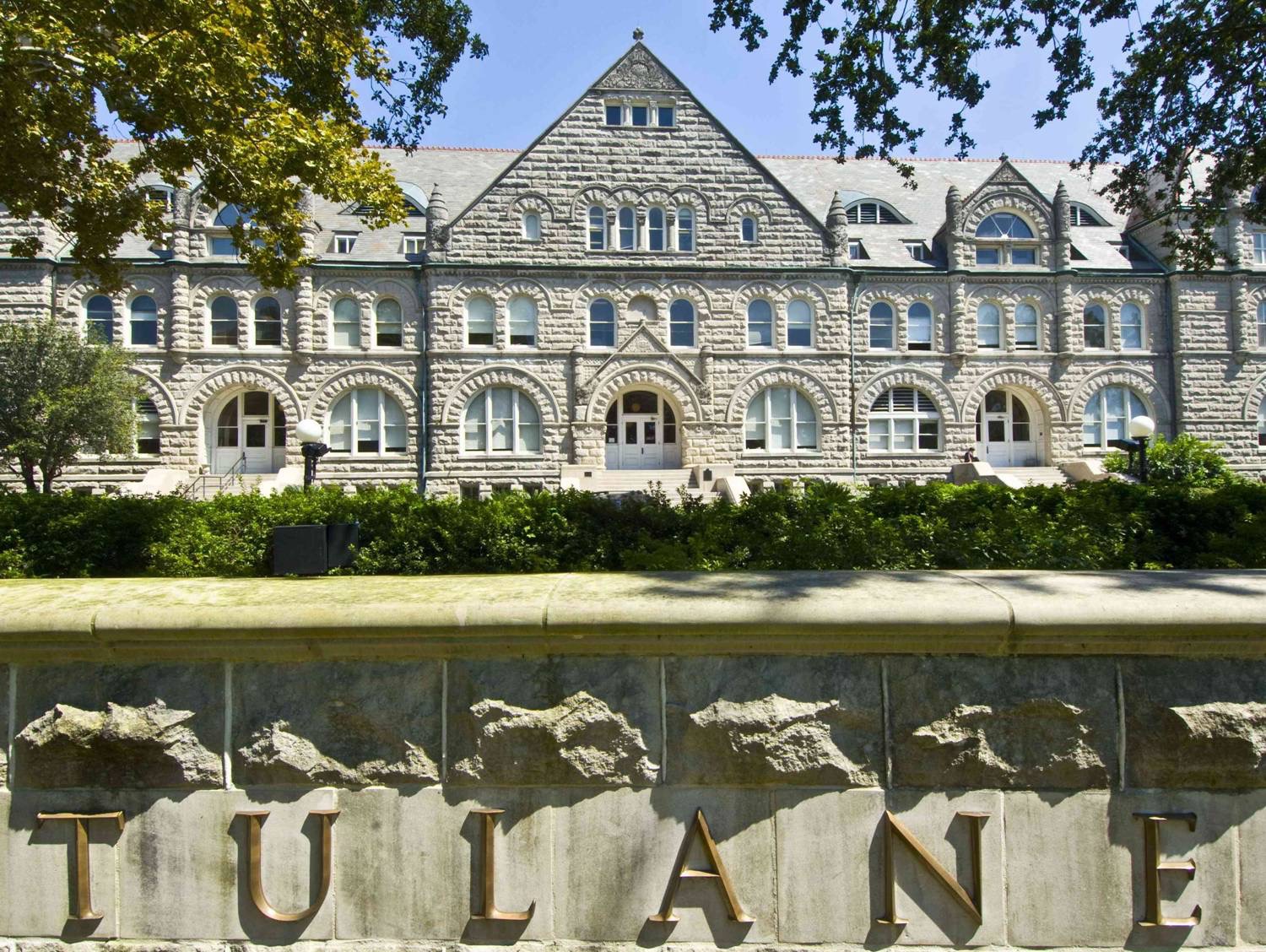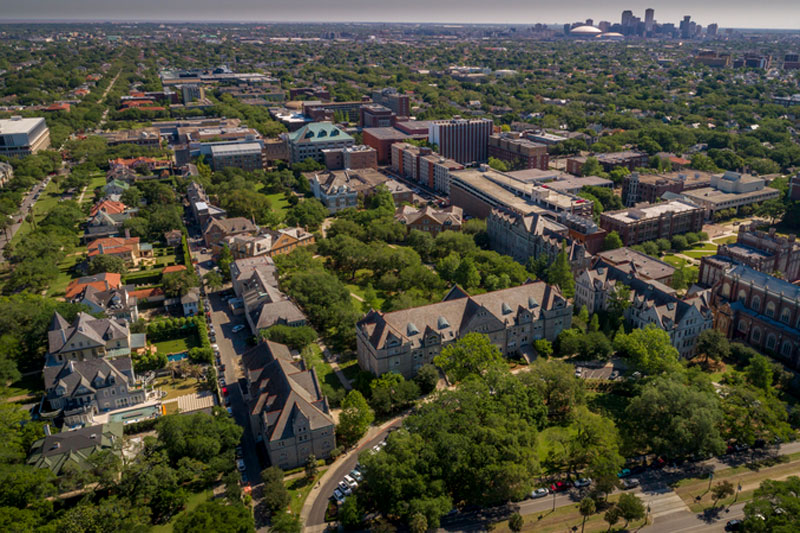Tulane Law School - A Look At Its Distinctive Approach
Imagine a place where the pursuit of legal knowledge truly connects with the wider world, a place where what you learn in books comes alive through helping people. This is, in a way, what you find when you consider Tulane Law School. It’s located in New Orleans, a city with a personality all its own, full of life and deep local character, making it a rather special spot to study something as important as the law.
This institution, you see, offers its students a clearer sense of how legal principles connect with community participation and a broad outlook on global matters. It's not just about what happens inside the classroom; it's also very much about how legal studies play a part in the lives of everyday folks and even across different countries. So, if you are looking for a place that values engagement with society, this might be a good fit, you know.
For anyone thinking about where to pursue a legal education, finding the right fit is a big deal. You might wonder if Tulane University is, perhaps, the best law school for your particular goals. It is certainly worth looking into, as many sources offer details on its standing, its course offerings, the admissions process, and, of course, what it costs to attend. This kind of information helps a prospective student make a truly informed choice, as a matter of fact.
Table of Contents
- What Makes Tulane Law School Unique?
- How Does Tulane Law School Prepare Students for Practice?
- Where Does Tulane Law School Stand in Legal Education?
- What Specialized Programs Does Tulane Law School Offer?
- The Heart of Tulane Law School - Its Location
- Community Connection at Tulane Law School
- A Legacy of Firsts at Tulane Law School
- Becoming Part of the Tulane Law School Community
What Makes Tulane Law School Unique?
Tulane University School of Law, as it is formally known, is a part of Tulane University. You find it situated on the main campus, which is in the uptown part of New Orleans, Louisiana. This location, as I was saying, gives it a distinct flavor, blending academic rigor with the city's lively character. It is, in some respects, quite a blend.
Established way back in 1847, this institution holds a significant place in the story of legal education in the United States. It is, actually, the 12th oldest law school in the country. This long history means it has seen many changes in the legal field and has, over time, developed its own traditions and ways of doing things. A place with such a long past often carries with it a sense of continuity and deep experience, too it's almost a living record of legal thought.
The fact that Tulane Law School has been around for so long also speaks to its enduring presence and, perhaps, its adaptability. To remain a relevant and respected institution for over a century and a half requires a certain kind of institutional strength and a commitment to its founding principles. It suggests, frankly, a deep-seated dedication to its educational mission, which is quite something.
How Does Tulane Law School Prepare Students for Practice?
One very notable aspect of Tulane Law School is its program of legal education. It is, for instance, set up to be quite demanding, with the goal of getting students ready for the bar exam. Beyond that, it also aims to prepare them for what comes next: participating in the legal profession in a way that is effective, principled, and responsible. This means not just knowing the rules, but also how to act with integrity, which is really important.
The school’s focus extends beyond just passing tests. It is about shaping individuals who can contribute positively to the legal system and to society as a whole. This broader aim suggests a deep commitment to producing lawyers who are not only skilled but also thoughtful about their role in the world. It’s a pretty comprehensive approach, you see, that goes beyond mere academic achievement.
Moreover, Tulane Law School has a rather strong emphasis on public service. It was, for example, the very first law school in the nation to make pro bono service a requirement for all its students. This means that every student must dedicate time to providing legal services for free to those who cannot afford it. This policy, in a way, puts its values into action, showing that service to others is truly at the heart of its educational philosophy.
Where Does Tulane Law School Stand in Legal Education?
When you look at the wider world of legal education, Tulane Law School has certainly earned a place of respect on the international stage. This standing comes from a long history of excellence, a clear sense of its mission, and many years of working towards worthwhile goals. It’s not something that happens overnight, but rather builds up over generations of dedicated effort, you know.
The institution’s reputation for excellence suggests that its graduates are well-regarded and that its contributions to legal scholarship and practice are recognized far and wide. This kind of recognition speaks to the quality of the teaching, the caliber of the students, and the impact of the school’s research. It is, frankly, a sign of consistent high performance.
The phrase "sureness of purpose" hints at a clear direction and a consistent vision for what the school aims to achieve. This means that, over time, Tulane Law School has remained committed to certain core ideals, perhaps about the role of law in society or the kind of lawyers it wants to produce. This kind of clarity can be very helpful for students looking for an institution that aligns with their own values, as a matter of fact.
What Specialized Programs Does Tulane Law School Offer?
Beyond the standard Juris Doctor (JD) degree, Tulane University Law School also provides some rather innovative master’s degrees. Specifically, it offers three Master of Jurisprudence degrees. These programs focus on particular areas of law, making them quite specialized and, in some respects, quite forward-thinking.
The areas of focus for these master’s degrees are labor and employment law, energy law, and environmental law. These are all fields that are very relevant in today's world, dealing with issues that affect many people and industries. The fact that Tulane Law School offers these particular programs suggests an awareness of current legal needs and an effort to prepare specialists in these important sectors. It's a way of addressing specific demands in the legal field, you see.
These specialized programs are set up to provide a high-level legal education in these distinct areas. They are designed, it appears, to give students a deep and practical understanding of these subjects, preparing them for specific roles within the legal profession. This kind of focused study can be incredibly valuable for those who already know which area of law they want to pursue, or for professionals looking to add legal expertise to their existing careers. It's quite a specific offering, honestly.
The Heart of Tulane Law School - Its Location
The fact that Tulane Law School is located in New Orleans is, quite literally, a part of its identity. New Orleans is known for its truly distinct culture, its music, its food, and its very unique history. This setting provides an environment that is, perhaps, unlike any other for studying law. It means students are surrounded by a city that is full of stories and real-world situations, which can offer a different perspective on legal issues. It’s a pretty special place, really.
The city itself offers a kind of living laboratory for legal studies. You have a legal system that has been shaped by both French and American influences, creating a truly interesting legal heritage. This historical depth, combined with the daily life of a busy, culturally rich city, provides countless opportunities for students to see the law in action, outside of textbooks. This kind of immediate exposure is, frankly, quite valuable.
Moreover, the local community in New Orleans is known for its strong sense of identity and its close-knit nature. This can influence how legal issues are approached and resolved, often with a focus on community well-being and local customs. For students at Tulane Law School, this means learning about law in a place where community ties are very apparent, which can shape their outlook on their future practice. It offers a very particular lens through which to view the legal profession, you know.
Community Connection at Tulane Law School
A key idea at Tulane Law School is a clear sense of community engagement. This means that the school encourages its students to become involved with the people and organizations around them. It’s not just about learning legal theory; it’s also about putting that knowledge to use to help others and to improve society. This active participation is, in a way, a defining feature of the educational experience there.
The school’s emphasis on service, particularly through its required pro bono work, shows how serious it is about this connection to the community. By requiring students to offer legal help without charge, it ensures that every future lawyer who graduates from Tulane has had direct experience working with individuals and groups who might otherwise not have access to legal support. This is, you know, a pretty powerful way to instill a sense of responsibility.
This focus on community service helps students to see the practical implications of their legal studies. They learn about real problems faced by real people, and they get to use their developing legal skills to make a tangible difference. This hands-on approach can be incredibly motivating and, frankly, helps to shape more empathetic and socially aware legal professionals. It is, perhaps, one of the most impactful parts of the Tulane Law School experience.
A Legacy of Firsts at Tulane Law School
As mentioned, Tulane Law School holds the distinction of being the first law school in the entire nation to require pro bono service from all its students. This was, as a matter of fact, a groundbreaking move when it was introduced. It shows a forward-thinking approach and a belief that service is not just an optional extra, but a central part of what it means to be a lawyer. This kind of leadership sets a very high standard for other institutions, you see.
This pioneering spirit also extended to other areas, such as clinical legal education. Tulane was, for instance, an early leader in providing practical, hands-on experience through clinics. These clinics allow students to work on actual cases under the guidance of experienced attorneys, giving them real-world skills long before they graduate. This practical approach is, quite frankly, essential for preparing students for the demands of legal practice.
The school’s long-standing excellence and commitment to worthwhile endeavors have, over time, given it an international standing. This means that its reputation extends beyond the borders of the United States, attracting students and scholars from around the globe. It also means that the contributions of Tulane Law School to legal thought and practice are recognized worldwide. This kind of global reach is, honestly, a significant achievement for any institution.
It is also noted that "We wrote the first book on." While the specific subject is not detailed, this phrase suggests a foundational contribution to a particular area of law or legal scholarship. This could mean that scholars at Tulane Law School were instrumental in developing a new field, or in compiling the first comprehensive text on a certain legal topic. This kind of pioneering academic work further solidifies its legacy as a leader in legal education and thought. It's a pretty strong claim, you know, implying deep intellectual contributions.
Becoming Part of the Tulane Law School Community
When it comes to admitting new students, Tulane Law School looks for certain qualities. They are interested in individuals who show the ability to do well as law students and, later on, as lawyers. This means they are looking for more than just good grades; they are also assessing a candidate's potential for critical thinking, problem-solving, and clear communication. It is, in some respects, about identifying future leaders in the legal field.
Beyond academic potential, the admissions process also considers whether a candidate will contribute positively to the school’s educational community. This suggests that Tulane values a diverse student body, made up of individuals who can bring different perspectives, experiences, and ideas to the classroom and to campus life. It is, perhaps, about creating a rich and varied learning environment where everyone benefits from interacting with others. This kind of collaborative spirit is, honestly, quite important for a healthy academic setting.
Ultimately, the school is seeking students who will not only succeed personally but who will also add to the broader community, both within the school and in the legal profession beyond. This holistic approach to admissions reflects the school’s overall philosophy: that legal education is about developing well-rounded individuals who are prepared to make a meaningful difference. It’s a pretty thoughtful way to build a student body, you see, with an eye towards the future impact of its graduates.
- Landmark Pasadena Playhouse
- Lime Lush Boutique
- Schnebly Redlands
- Bouldering Project Brooklyn
- Glenn Cambre Lawyer

A Visit to Tulane University | College Expert

Campuses | Tulane University

Tulane University Guide - Ivy Scholars